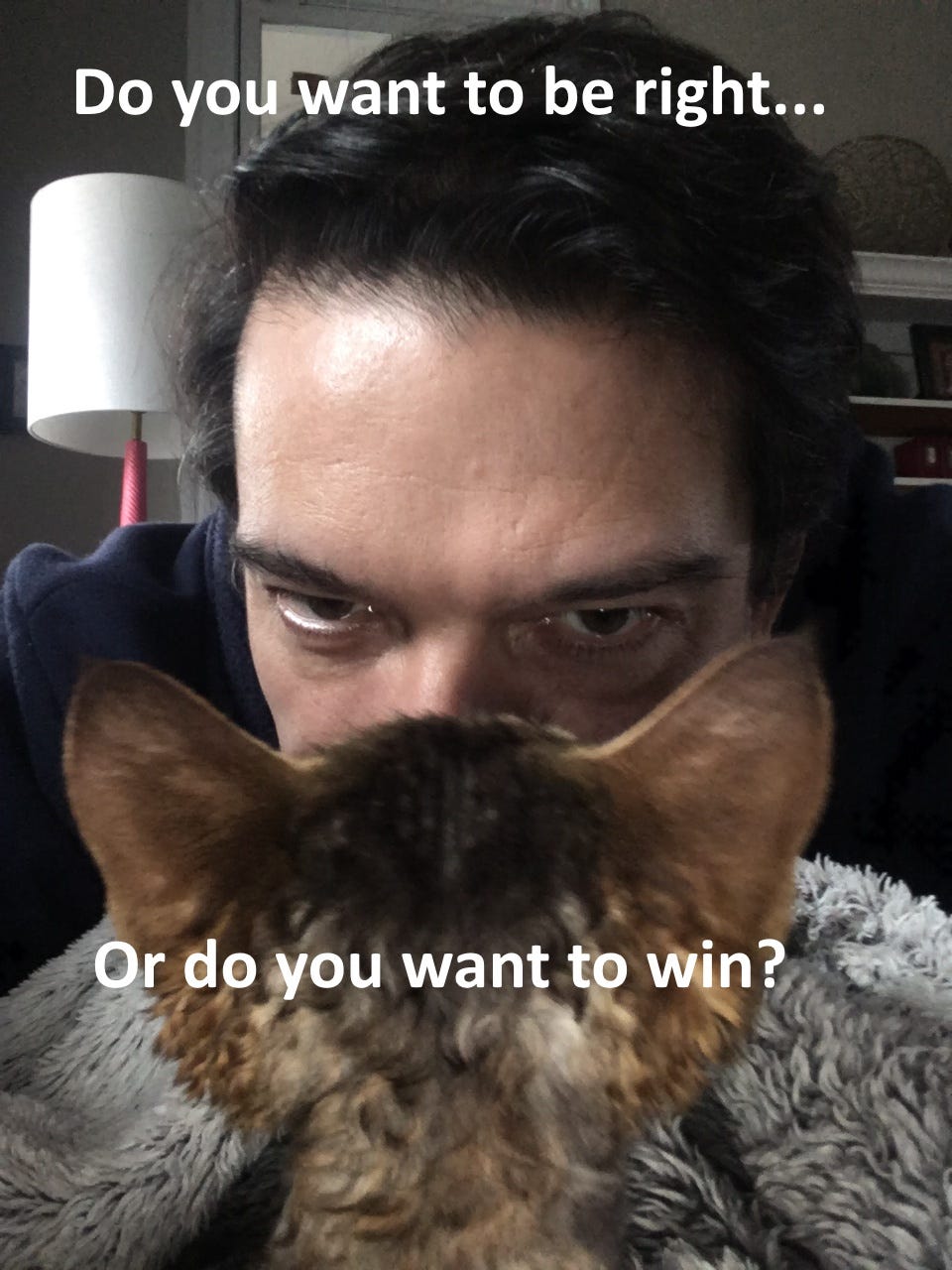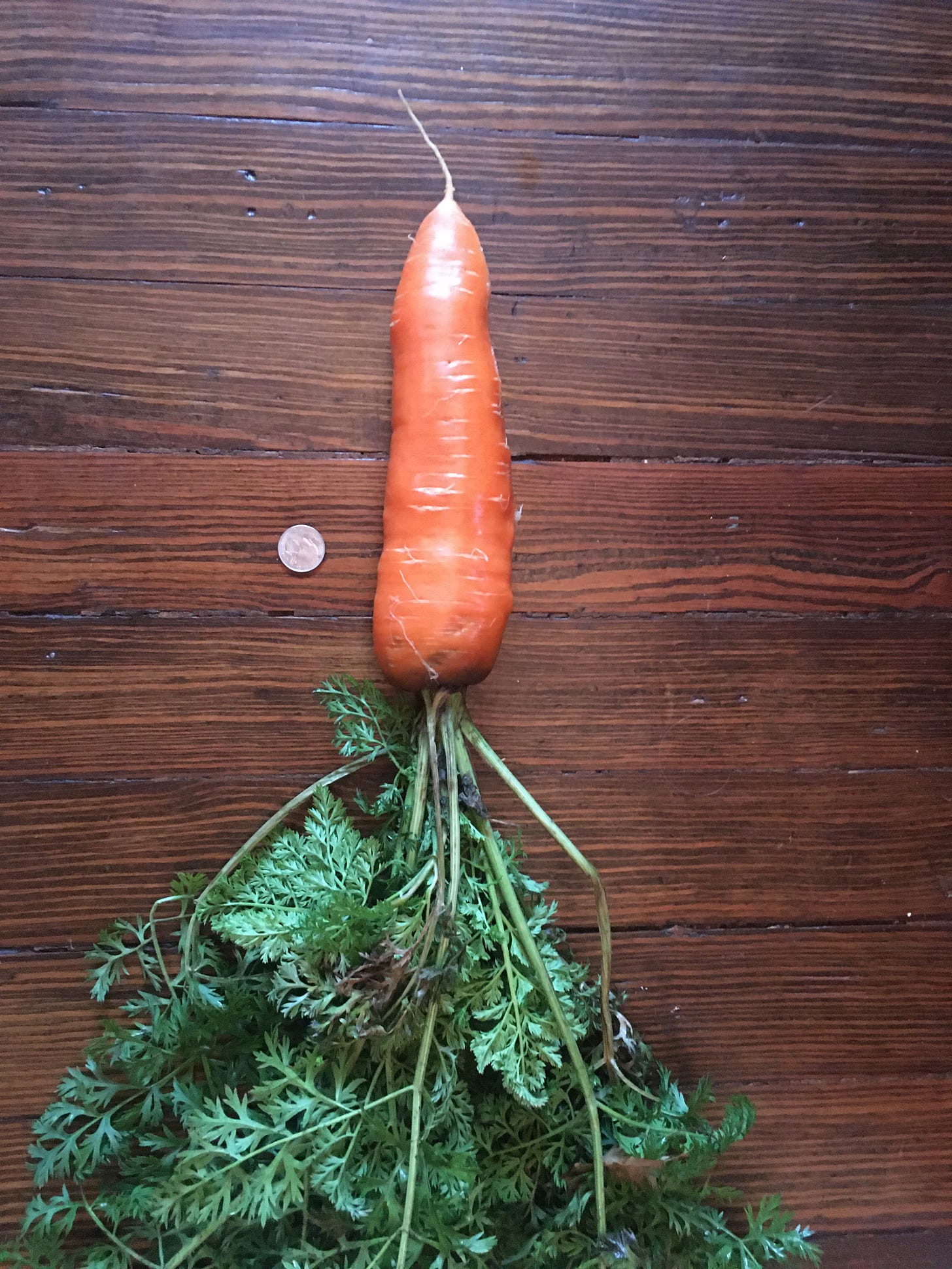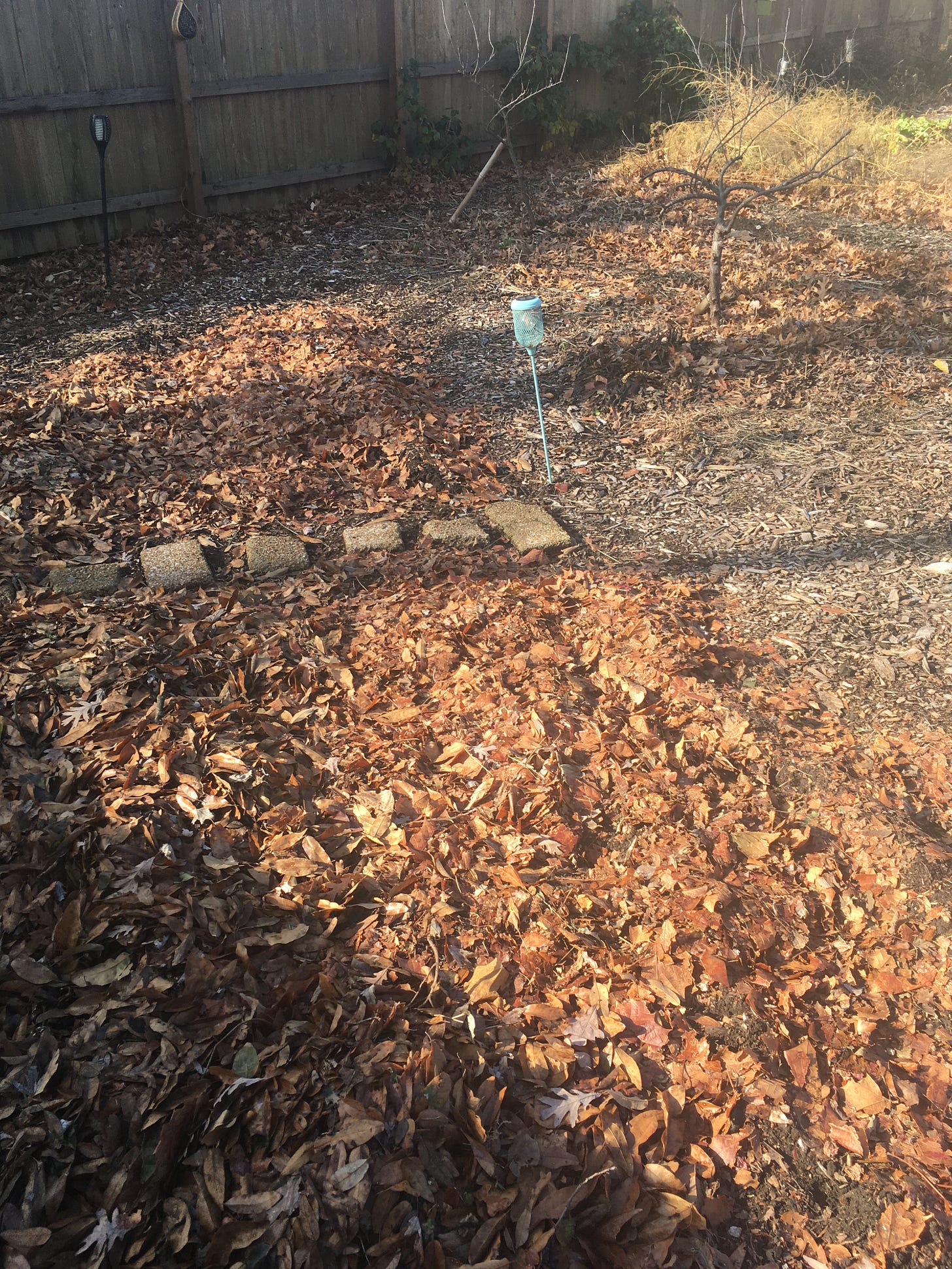Do you want to be right, or do you want to win?
The choices we make... or don't make.
By Anthony Valterra
I always like to credit where I can, and this particular truism came from a former boss of mine named Mary Kirchoff. Mary was a VP at Wizards of the Coast, in charge of the “publishing line.” This meant that novels, roleplaying games, and magazines were under her. This was a sweet little business that was worth somewhere in the region of $20 million per year. But she was part of a company that had an ongoing game, Magic: the Gathering, that regularly made $150 million and was about to launch a game that would bring in nearly $1 billion (Pokemon trading cards).
The result was that Mary’s group was seen as the “red-headed stepchild” of the company. Sure, it was profitable, but the licensing of Dungeons & Dragons literally brought in more money than the sale of the product itself! How’s that for upside down? The result is that Mary was constantly fighting for crumbs. As one of her brand managers, I often came to her frustrated that I could not get the resources or attention that I thought the brand I was managing needed. My solution was that Mary should go into the executive’s meeting and demand that we get what we deserved!
That is when Mary would ask me her famous question: “Do you want to be right, or do you want to win?” Mary knew that her division was always going to be marginalized and that pointing out that we were being treated unfairly might feel great (in the moment) but it would result in her being (at best) ignored and (at worst) replaced with someone more tractable. Her solution was to take the long view and try to manipulate the system in our favor.
Being Right
Do you want to be right, or do you want to win? I want to broaden the concept a bit. I used to teach game design at Webster University. One of my lectures was a variation on this concept. I called it, “Is it art, or is it a product?” Believe it or not, at the root, the question is the same. If it is art, then you can make it and feel wonderful about your creation, but you should be prepared that no one else will care about it. If it is a product, then you may have to forego the joy of creating art and create something that people want.
Oh, sure, occasionally you get it all. But most times you have to make a choice. Do you want to go down the path that makes you feel good in the moment, or do you want to achieve a goal that may be dull, obscure, and an effort? As the fictional “fixer” Olivia Pope in Scandal would often confrontationally ask her clients, “What do you want?!”

And that question is at the root of it all. What do you want? What do you really want? We all feel like punching the guy who cut us off on the highway, but does that get us where we really want to be? We may love the convenience and taste of fast food, but will that provide for our health? We may want to sleep in and watch shows on the weekend, but will that help us prepare for the future we feel certain is coming? Is publicly proclaiming our support for “the current thing” really making a difference? Are we capable of being honest with ourselves about this?
Winning
Brunette Gardens is a lot of work, and we do it on top of our regular jobs. Part of the reason we can do it, is that we know why we are doing it. We would love to make a little income off of it, but that is not the primary reason we do it. We love the accolades we get from the community and various organizations, but that is not our prime motivator, either.
We do this because we sincerely believe that the future is not going to go the way most in our society believe it will. Being able to walk lightly on the land, while getting more sustenance directly from it, will not just be a nice thing to do but will be necessary for survival. We do this for our own future. We love that what we are doing is helping the planet be more sustainable, but really we want our lives on this planet to be more sustainable.
As Lisa has said in other posts, we aren’t preppers, and we certainly aren’t homesteaders. We’re something different. We can’t chuck our lives and our businesses, but we know what we need to do to win (long-term). Sometimes that means looking out of step. This week we drove around our neighborhood and took bags of leaves that our neighbors left out to be picked up by the city. We then spread them on our garden. Think about it. Our neighbors are picking up leaves that fell in their yard, and leaving them to be picked up by the local government. We are picking up the leaves left on the curb and putting them on our yard.
Choosing to forego being right in order to shoot for a win means taking a long view and sitting in a place that is a bit uncomfortable. A space that is neither wholly mainstream but also not firmly alternative. And there are times when you need to take a stand, and maybe I’ll write about that soon. But sometimes it is better to win than to be right.








With you, I always win.
Lots of food for thought here! Will be thinking about this one for a while.